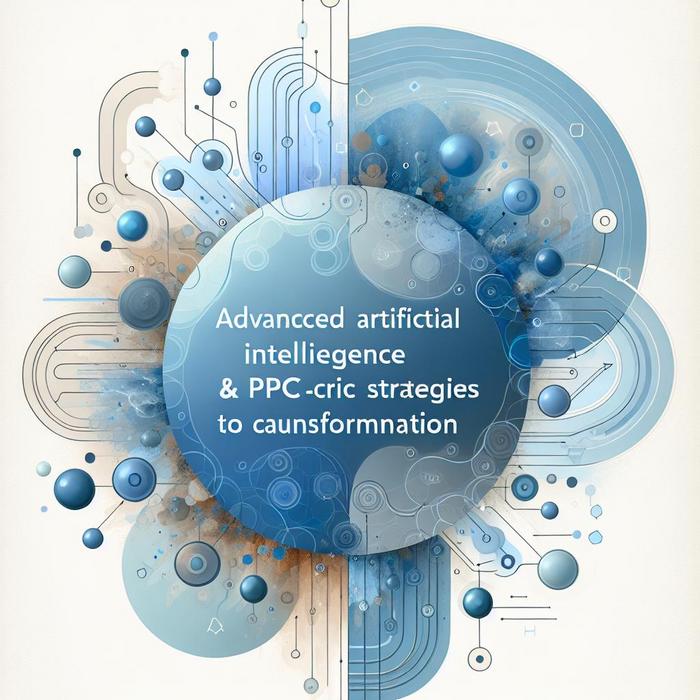Can AI Transform PPC Strategies for Higher Returns?
I’ve seen one question consistently on the minds of high-level executives: How can AI transform PPC strategies for higher returns?
The use of AI-powered PPC tools is becoming increasingly indispensable. Turning to AI for PPC campaign optimization isn’t just a competitive advantage; it’s becoming the industry standard. But, it’s essential to understand how this powerful technology can drive business growth.
The Power of AI in PPC Campaigns
AI tools have an unprecedented ability to learn from data and make predictions or decisions without human intervention Growth Labs. In PPC campaigns, AI can automate bidding, optimize ad delivery, and improve ROAS amongst other benefits.
Consider these advantages:
- AI can analyze vast amounts of data in seconds, helping to tailor campaigns to specific audiences.
- AI technology can automate bidding, reducing manual work and enabling businesses to focus on strategy and creative processes.
- AI can predict ad performance and optimize campaigns to deliver higher returns, making ad spend more efficient.
Embracing AI-Powered Marketing Technology
It’s allowing businesses to achieve higher levels of precision and effectiveness. Value-based Optimization is one such example. This strategy focuses on maximizing the value of conversions, rather than just increasing the number of conversions PPC AI Tools.
The use of AI tools can identify patterns and trends in the data, providing actionable insights that can drive more valuable conversions and a better ROI on ad spend.
Debunking Myths About AI and PPC
Unfamiliarity with AI technology sometimes leads to misconceptions. One is that AI will eliminate jobs. However, the aim of AI isn’t to replace humans but to augment human capabilities, helping marketers to make more informed decisions Hawksem.
AI will automate routine tasks, freeing up time for strategic thinking and creative work. And while AI can provide valuable insights, human analysis and interpretation are still needed to make strategic decisions.
Implementing AI in Digital Advertising
The adoption of AI-powered PPC tools can be a game-changer for many businesses. But incorporating AI into existing strategies requires careful planning.
The first step is to understand your business’s specific needs and goals. Next, consider how AI can enhance your current PPC strategies. Then, choose the right AI tools that align with your objectives, such as those offered through PPC AI Tools here.
It’s also essential to monitor and adjust your strategies continually. AI is data-driven; the more data it has, the better it performs. Regular monitoring allows you to ensure the AI tools are performing optimally and adjust as needed.
Implementing AI into PPC strategies promises a future of more effective ad campaigns, higher ROAS, and significant growth. As a business strategist, acknowledging this transformation and harnessing the power of AI can pave the way for success.
Harnessing this advanced technology now will not only enhance current strategies but ensure you’re well-placed for the future of digital advertising.
Navigating the AI Transformation in PPC
This exciting transformation signaled by artificial intelligence is not without challenges. As AI technology continues to expand, so does the spectrum of software platforms and tools available. It can become overwhelming to determine which tools could potentially revolutionize your PPC campaigns Two Trees PPC. Each business has unique needs, and it’s crucial to identify AI-based tools that are not only reliable but also align with your budget, strategic goals, and team’s capabilities.
Value-Based Optimization: Maximizing Ad Spend
A significant focus area for AI application in PPC strategies is ‘Value-based Optimization.’ This approach shifts the focus away from simply increasing conversions to maximizing the value of each conversion, directly influencing the return on ad spend (ROAS) PPC AI Tools.
Value-based optimization leverages AI-driven insights to determine actions that will likely produce the greatest return. These decisions can be as complex as deciding the optimal time to show an advertisement or as high level as determining the investment proportion across different campaigns.
Revolutionizing Campaign Management with AI
One of the remarkable aspects of AI is its ability to learn continually and adapt its strategies for better performance. As AI continues to handle more and more data, it becomes smarter and increasingly efficient in predicting outcomes. This leads to better campaign performance and helps businesses stay ahead of their competitors Artsyltech.
With AI technology, PPC strategies are no longer a game of chance or simplistic rules. With predictive tools and data analysis, AI can deliver a more customized, more targeted, and ultimately, more successful PPC campaign.
AI and Future-Proofing Marketing Strategies
AI is not a passing trend; it’s the future of PPC and digital advertising. Businesses that want to stay competitive need to harness the potential of AI and integrate it.
However, adapting to this change is not just about adopting AI-powered tools. It’s about fostering an organizational culture that understands AI technology, is flexible to changes, and is devoted to continuous learning Science Direct.
Start now. Begin by conducting an audit of your current marketing goals, PPC strategies, and KPIs. Allow this restructuring to guide your first steps into an AI-enhanced world of PPC strategy.
AI has indisputably transformed how we conduct PPC campaigns, and this shift will continue to accelerate. It will drive significant changes and offer unprecedented opportunities for businesses willing to adapt, learn, and grow.
AI in PPC is about making ad spend more efficient, analysis more insightful, and strategies more effective. As we further explore and hone AI capabilities, we’ll continue to unlock new possibilities for lucrative and successful PPC campaigns.
There has never been a more exciting or rewarding time to delve into the world of AI-powered PPC campaigns. The future is here, the future is AI, and it’s only getting started.
